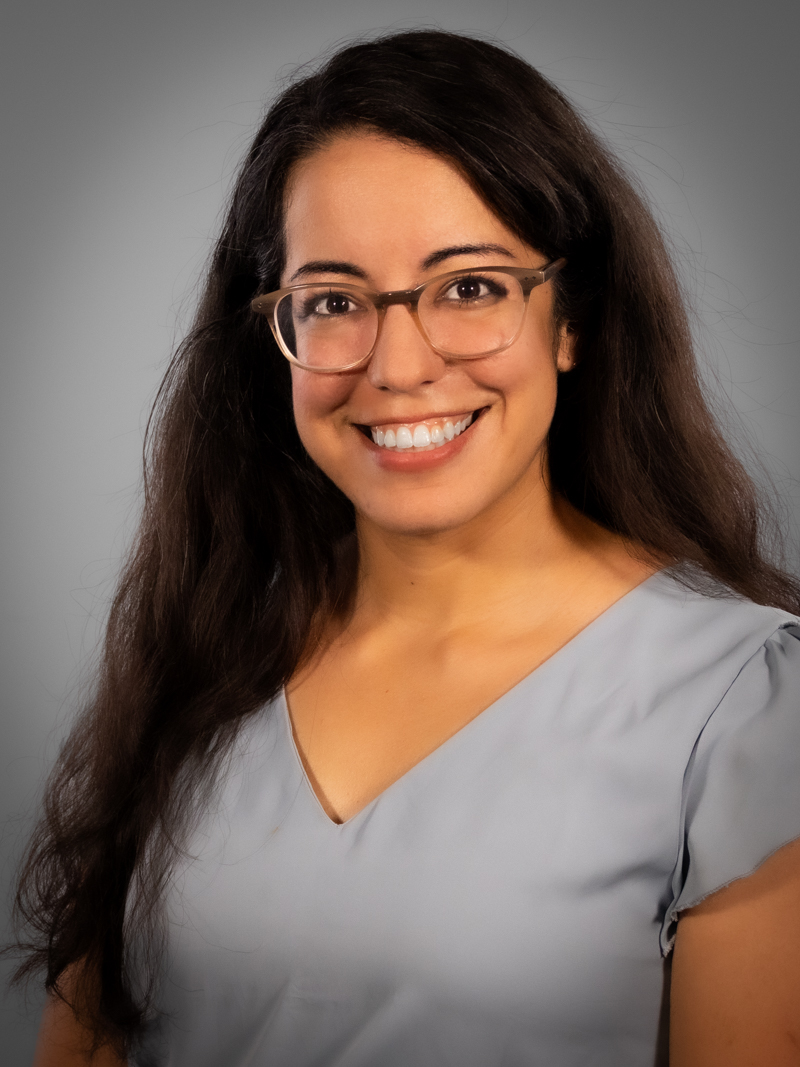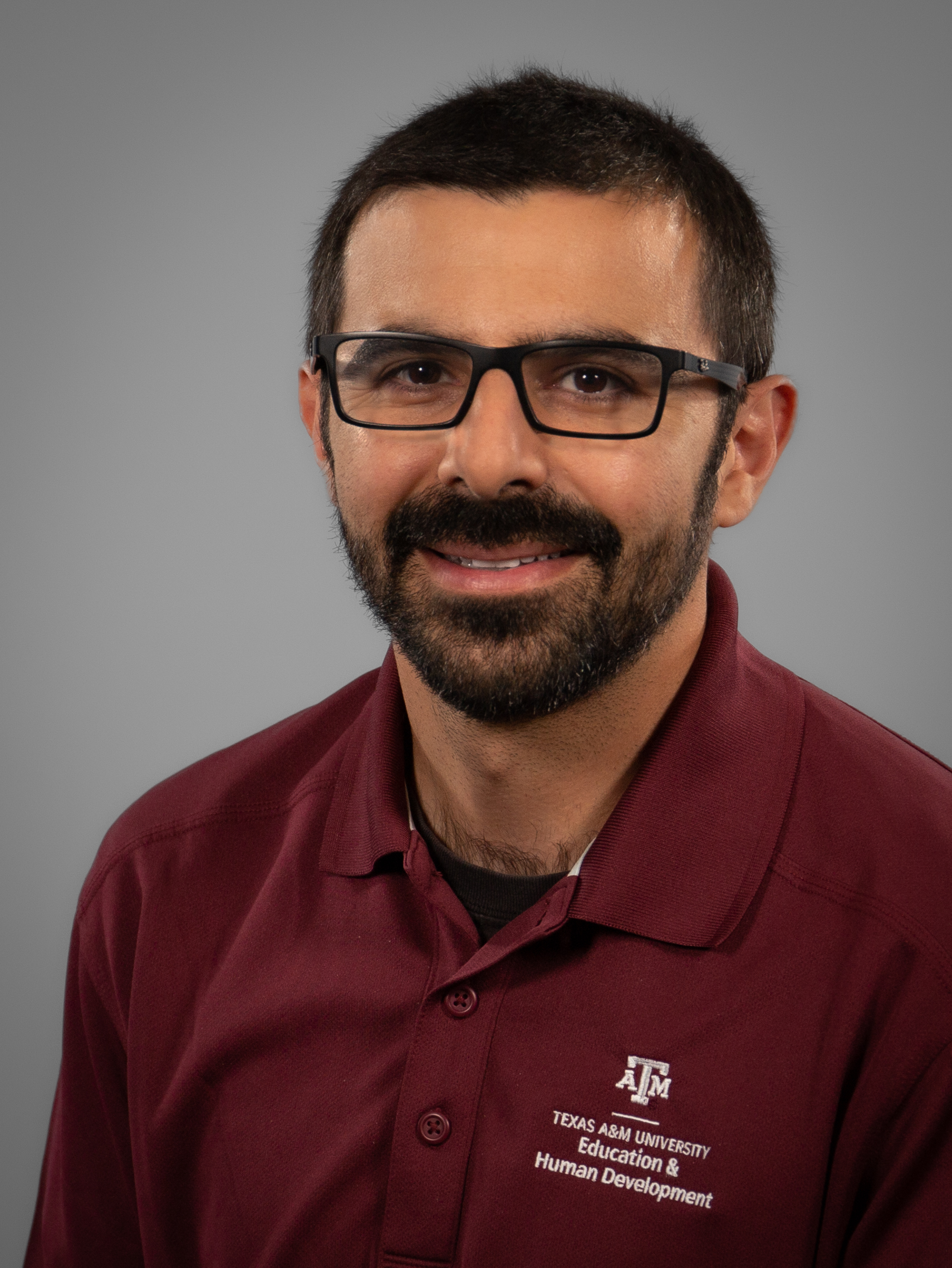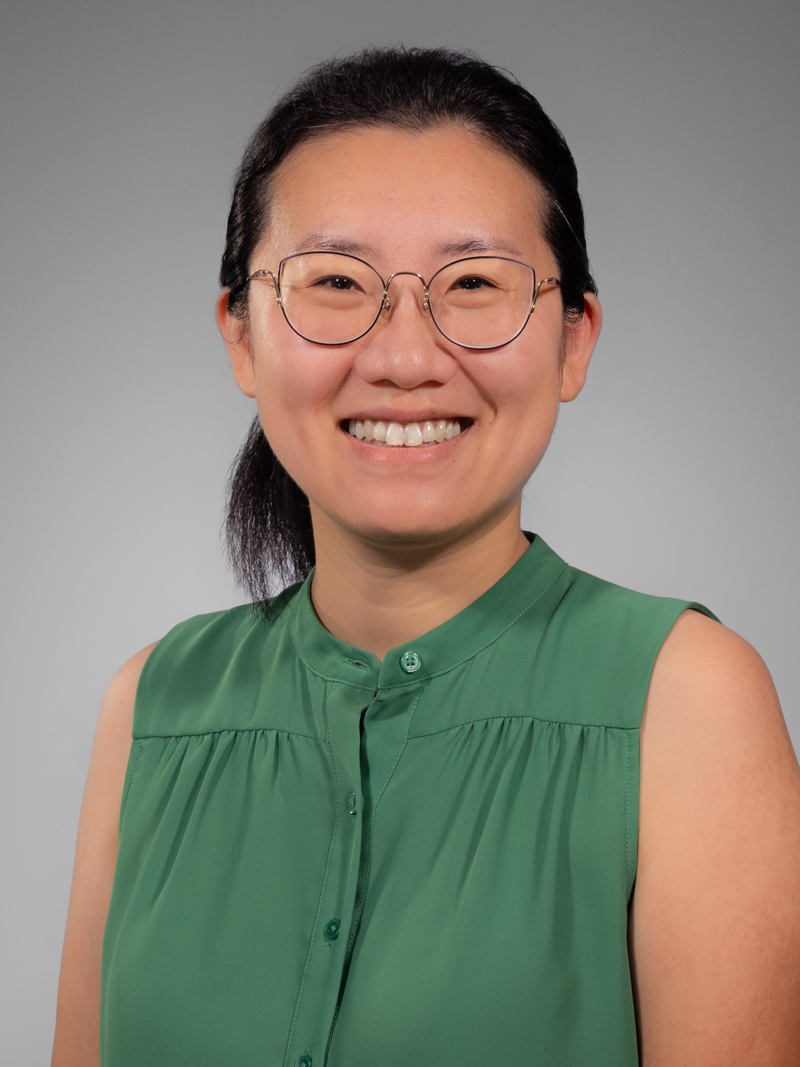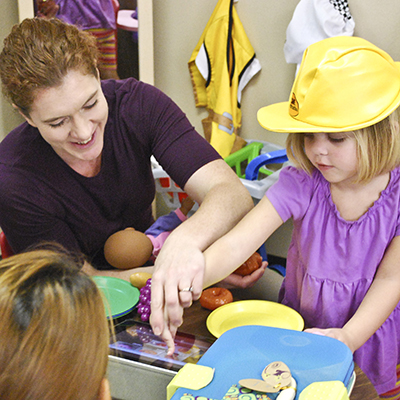Ph.D. in Educational Psychology: Emphasis in Developmental Sciences
Human development is a complex process that is situated within a multi-layered biological, psychological, and social-cultural context. Developmental Sciences focus on the examination of biological, psychological, interpersonal, and contextual factors which impact the trajectories of behaviors, personality, well-being, learning outcomes, and relationships of individuals and families across the lifespan (from infancy through adulthood). Developmental scientists strive to integrate rigorous theory, research, teaching, and practice that promotes learning and healthy developmental outcomes across diverse populations and communities.
What can you do with this degree?
Our esteemed program offers a range of opportunities within both the public and private sectors. This degree prepares you for impactful roles in agencies and organizations dedicated to serving children, youth, and families. You will also gain the expertise to conduct valuable research that informs policies and practices, contributing to the well-being of individuals. Recent graduates have achieved success as research and teaching faculty members in higher education institutions, researchers and data analysts in community-based organizations and schools, as well as consultants in various academic, applied, and industry positions. These roles may include program evaluators, statistical consultants, project managers, and directors.
Who are we?
The Ph.D. Program in Educational Psychology with an emphasis in Developmental Sciences is a part of the Developmental Sciences (DS) Program, which operates within the Department of Educational Psychology (EPSY) and the College of Education and Human Development (CEHD) at Texas A&M University. The Developmental Sciences program faculty coordinate the Ph.D. and M.Ed. programs in Educational Psychology with an emphasis in DS, and the undergraduate Bachelor’s degree in Human Development and Family Sciences (HDFS). As a student in Developmental Sciences, you can benefit from various educational, social, and funding opportunities promoted by the program.
Follow us on social media: Take a look at our ongoing activities and learn more about what we do in the Learning Sciences area on our social media platforms. We have a Learning Sciences Facebook page and a Learning Sciences Twitter account.
Program Advisor

Program Faculty













Affiliated Faculty
Doctoral students applying to enroll in the Developmental Sciences Ph.D. program can also apply to work with one of our affiliated program faculty:
Rebecca Brooker, Allegra Midgette, Karen Rambo-Hernandez, Jun Wang
Program Details
The Ph.D. Program in Educational Psychology with an emphasis in Developmental Sciences is a part of the Learning Sciences Division (LS), which operates within the Department of Educational Psychology (EPSY) and the College of Education and Human Development (CEHD) at Texas A&M University.
Degree: Ph.D. in Educational Psychology
Emphasis: Developmental Sciences
Degrees Offered: Doctor of Philosophy (Ph.D.)
Credit Hours: minimum 64 hours
Select College of Education and update credit hours.
Curriculum
This program curriculum will build:
- Understanding of how research impacts one’s area of interest.
- Awareness of ways creative thinking can provide a competitive advantage in problem-solving.
- Deeper understanding of learning and instruction.
Core Curriculum
FOUNDATION COURSES (9-12 credit hours)
EPSY 602 Educational Psychology (3 credit hrs.)
EPSY 673 Learning Theories (3 credit hrs.)
At least one of the following:
EPSY 646 Issues in Child and Adolescent Development (3 credit hrs.)
EPSY 647 Life Span Development (3 credit hrs.)
SPECIALIZED COURSES (12-18 credit hours)
At least two of the following learning sciences courses:
EPSY 606 Motivation and Learning (3 credit hrs.)
EPSY 634 Educational Neuroscience (3 credit hrs.)
EPSY 648 Intelligence and Creativity (3 credit hrs.)
EPSY 689 Developmental Neurobiology of Learning (3 credit hrs.)
At least two of the following developmental sciences courses:
EPSY 671 Interpersonal Relationships (3 credit hrs.)
EPSY 632 Social and Emotional Development and Interventions (3 credit hrs.)
EPSY 689 Temperament, Behavior Problems, and Psychopathology (3 credit hrs.)
RESEARCH COURSES (minimum 21 credit hours-advanced courses may be substituted)
EPSY 622 Measurement and Evaluation in Education (3 credit hrs.)
EPSY 635 Educational Statistics (3 credit hrs.)
EPSY 636 Techniques of Research (3 credit hrs.)
EPSY 625 Advanced Psychometric Theory (3 credit hrs.)
EPSY 640 Experimental Design in Education I (3 credit hrs.)
EPSY 641 Experimental Design in Education II (3 credit hrs.)
EPSY 633 Qualitative Research Design and Data Collection (3 credit hrs.)
DISSERTATION RESEARCH (minimum 12 credit hours)
EPSY 691 Dissertation Research Hours (variable credits)
ADDITIONAL ELECTIVE COURSEWORK (1 or more credit hours)
Courses both within and outside of EPSY (including additional courses in educational psychology or research) may count toward elective coursework. Students should consult with their advisor or program committee to identify appropriate electives.
________________________
- The Developmental Sciences Specialization requires a minimum of 64 credits beyond a master’s degree to earn a Ph.D. (The minimum is 96 credits for those without a master’s degree.)
- Core course requirements may be waived for students who have successfully comparable graduate coursework and/or demonstrate requisite knowledge and skills.
Apply
Applications are currently open and will close on December 1st for fall 2026 admissions.
Students select committee members and develop a degree plan, which must be submitted for approval. Applicants must follow all departmental admission requirements.
STEP 1 - GATHER INFORMATION
If you are considering applying to our Developmental Science Doctoral degree program, consider gathering information about yourself and about the program.
Gather information about yourself
- Your career goals. This degree program is geared for students who wish to become professors or researchers in the field of developmental sciences (e.g., developmental psychology, human development, educational psychology). In this program, you will develop content knowledge expertise in developmental theories and methodologies, and conduct research studies to test research questions related to your research interests.
- Your previous academic experiences and current skill set. This program is a good match for you if you have had previous experience working in the field of and/or have relevant research experiences that could foster an interest in studying developmental science, such as psychology, human development, and education. Our program is also a good match if your research interests align with the research focus of one or more of our program faculty.
- Your expectations. In this program, you will take courses on broad educational psychology topics, learning theory, and more specific program courses on development at various life stages in various domains. You will also take courses that will enable you to conduct research, analyze and write up results from research studies, and develop statistical analysis skills.
- The timing of your application. We have one application cycle for this program in the fall. The best time for you to apply is when you are ready to make a commitment to pursue doctoral-level training in the field of developmental science through coursework and active engagement in the research process.
Gather information about our programs
- Consider potential doctoral advisors. The doctoral advisor is essential for guiding doctoral students through the many milestones that occur throughout the degree program (e.g., thesis, preliminary exam, dissertation). Doctoral advisors usually accept one or two students a year who have overlapping research interests with their own. These advisors serve as mentors throughout students’ doctoral training and provide advice as they develop their content knowledge, research interests, and research methodology skills.We strongly encourage you to take into account your own research interests when you are searching for faculty members in our program to work with. Contact the faculty member with whom you have overlapping research interests to see if they are taking on new doctoral students for the academic year you plan to apply for. You can find our faculty in the “Faculty” section of this website. Faculty members may have listed whether they are recruiting students for the next academic year in their profiles.
- Consider the coursework you will take. Take a look at the coursework we offer in the “Program Details” section of this website. A Ph.D. is a research degree, and a large part of the curriculum for this degree is focused on developing research skills.
- Follow us on social media: You can take a look at our ongoing activities and learn more about what we do on our social media platforms. We have a Learning Sciences Facebook page and a Learning Sciences Twitter account.
- Ask remaining questions. If you have additional questions about the program, you can contact the academic advisor for graduate students. The academic advisor can help answer additional questions you may have about the degree and credit information, admissions deadlines, required application materials, and coursework for the degree program.
STEP 2 - GATHER MATERIALS
APPLICATION MATERIALS
All materials (except for TOEFL/IELTS scores) will be uploaded directly to the GraduateCAS Grad application. Additional information about materials can be found in our Departmental Admissions requirements page for our Doctoral degree programs.
- Individually prepared materials
- Statement of Purpose
- Resume/CV
- Recommendation letters submitted on your behalf
- Three letters of recommendation
- Transcripts and standardized test scores
- Make sure you have enough time to have the official transcripts from prior degrees sent to you before the application deadline. You cannot be considered for acceptance into the program until an official transcript is on file with Texas A&M University.
- Official transcripts and records from all colleges and universities attended (excluding community colleges; minimum 3.0 GPA recommended)
- International students from non-English speaking countries only: Official TOEFL scores (or IELTS scores)
- The GRE is not required for this program.
- Make sure you have enough time to have the official transcripts from prior degrees sent to you before the application deadline. You cannot be considered for acceptance into the program until an official transcript is on file with Texas A&M University.
- Application fee
- Domestic applicants: $89 non-refundable fee
- International applicants: $114 non-refundable fee
PREPARING A STATEMENT OF PURPOSE FOR THIS PROGRAM
Your statement of purpose should include not only your inspiration for pursuing a doctoral degree; it should also highlight your past training, research, and applied experiences in relevant fields. In addition, you should also state your career goals and plans for this doctoral training, such as your areas of research interests, which faculty mentor(s) you are interested in working with, and the expertise and experiences you would like to develop/gain from this program. Finally, if you are applying to multiple programs across universities, each program you apply to will be different. Remember to customize your statement of purpose for each program. This allows you to better illustrate how each specific program will be useful and help you meet your career goals.
- Preparing your personal statement for graduate school applications: https://www.apa.org/ed/precollege/psn/2016/09/graduate-school-applications
PREPARING A RESUME/CV FOR THIS PROGRAM
In general, your CV should highlight your past academic and professional experiences relevant to the program you are applying to. This could include (but not limited to) your education background, past research training and achievement, past teaching experience and certification, and applied work/volunteer experience (e.g., experience working with youth and families as a counselor, social worker, program developer, etc).
- Build a better CV: https://www.apa.org/gradpsych/2015/01/curriculum-vitae
PREPARING REFERENCES TO WRITE LETTERS OF RECOMMENDATION FOR THIS PROGRAM
Letters of recommendations should be from professors, course instructors, or research mentors. Letters should not be from family or friends.
- The art of the letter: https://www.apa.org/monitor/2017/01/letter-recommendation
GENERAL TIPS
- Preparing and Applying for Graduate School in Psychology: https://www.apa.org/education-career/grad/application-video-series
STEP 3 - APPLY
Click the APPLY button below to get started.
Frequently Asked Questions
Doctoral
List of Bachelor Degree Equivalencies
Please view a brief List of Bachelor Degree Equivalencies by Country. If you do not find your country listed and are unsure of your degree equivalency, please contact the Office of Admissions at admissions@tamu.edu.
Statement of Purpose Essay
All applicants must complete the Essay, Statement of Purpose and explain the following:
-
- Why you applied to this program
- Academic background and training
- Potential for graduate study
- Research experience
- Other relevant professional experiences
-
I want/need a Graduate Assistantship/Fellowship – how do I apply?
Please note that we cannot guarantee any financial assistance to any student. We will contact all admitted students about the process for applying for all available assistantships. This is a separate process from applying for admission. The department and programs will choose students to be nominated for Graduate Diversity or Graduate Merit fellowships. These fellowships are only open to U.S. citizens. Please do not ask to be nominated for one of these fellowships as the program will determine which students are competitive for these awards.
How do I submit my letters of Recommendation?
The GraduateCAS online application includes a Recommendations section where you must add your recommenders’ information. Once you have saved the recommendation requests, GraduateCAS will contact each recommender via email to request the completion of the recommendation form and letter of recommendation. We require three letters of recommendations and they must be submitted directly by recommenders through the electronic system.
Is there an admissions cycle for Spring semester?
No. For our Ph.D. programs we only have admissions in fall semesters.
What are the typical program costs?
Check out the cost of attendance estimator.
Please note, you must update the program hours.
For a better understanding of your total cost of attendance (COA), please visit our cost and tuition rates webpage (https://aggie.tamu.edu/billing-and-payments/cost-and-tuition-rates). This webpage will provide you with an opportunity to review estimated COA information for undergraduate, graduate and professional students, as well as other resources such as the tuition calculator and billing and fee explanations.
Can you guide me through the application process?
How to Apply: Master’s Application Information | Doctoral Application Information
I live out of state. Do you accept out-of-state applicants?
Yes, we accept in-state and out-of-state applicants.
Is there any opportunity for financial assistance?
Yes, there are opportunities for financial assistance through the following departments: Office of Graduate Studies Financial Aid
Tuition and Fees
For a better understanding of your total cost of attendance (COA), please visit our cost and tuition rates webpage (https://aggie.tamu.edu/billing-and-payments/cost-and-tuition-rates). This webpage will provide you with an opportunity to review estimated COA information for undergraduate, graduate and professional students, as well as other resources such as the tuition calculator and billing and fee explanations.






